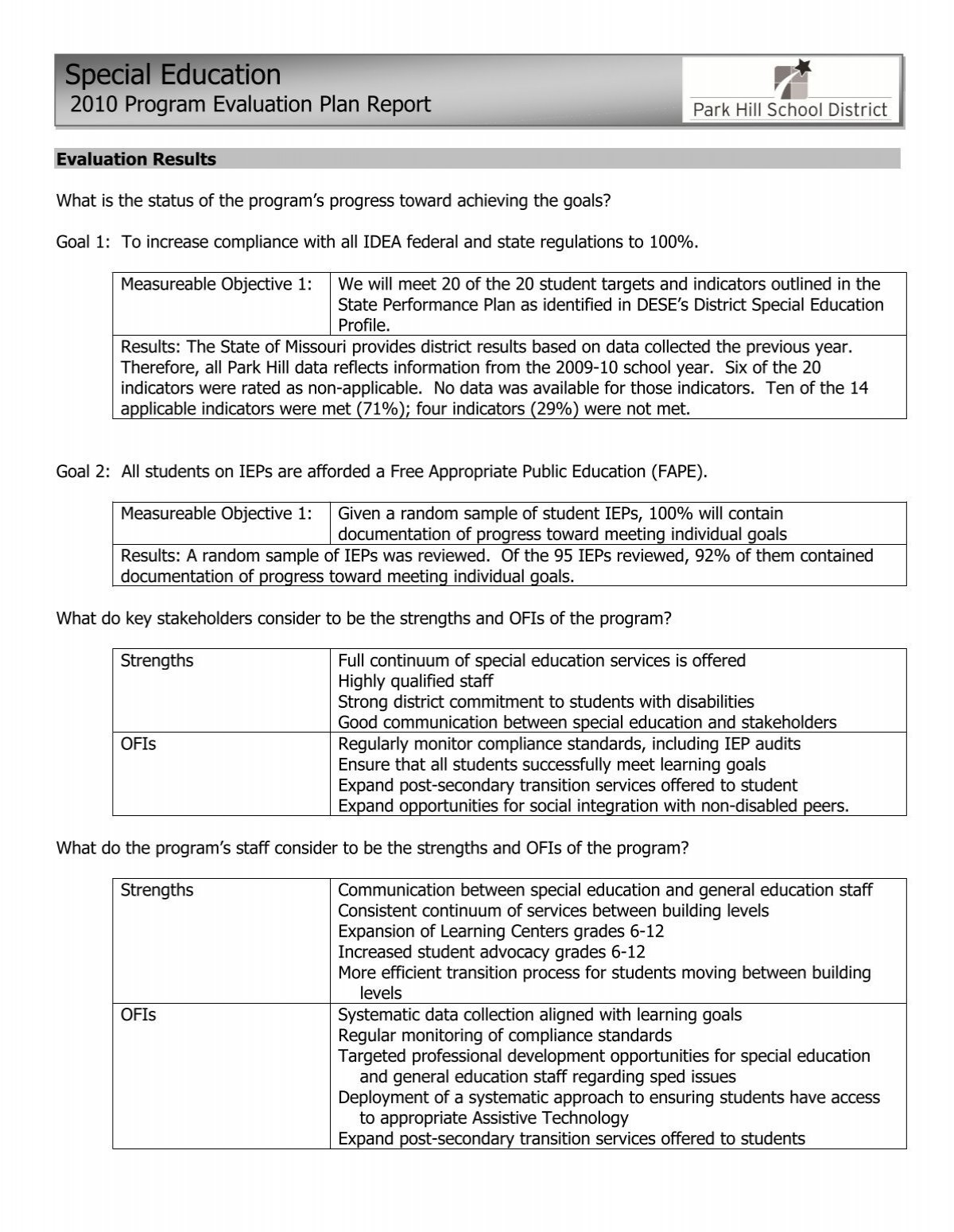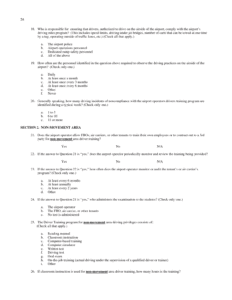Evaluating special education programs is crucial for ensuring their effectiveness, meeting students’ unique needs, and ensuring compliance with legal and ethical standards. A well-structured evaluation template provides a systematic approach to assess the program’s strengths, weaknesses, and areas for improvement.
A comprehensive special education program evaluation template typically includes several key sections. These sections may vary depending on the specific program and evaluation goals, but generally cover areas such as:

Program Components and Implementation
This section evaluates the overall design and implementation of the special education program. It examines the program’s objectives, curriculum, instructional methods, and support services. Questions to consider include:
- Are the program’s objectives clearly defined and aligned with educational standards?
- Is the curriculum relevant and appropriate for the needs of students with disabilities?
- Are instructional methods effective in engaging students and promoting learning?
- Do students have access to necessary support services, such as speech therapy, occupational therapy, and counseling?
Student Outcomes
This section assesses the impact of the special education program on student outcomes. It examines data such as academic performance, functional skills, and social-emotional development. Questions to explore:
- Are students making progress towards their individualized education plan (IEP) goals?
- Are students developing functional skills that will prepare them for post-secondary education, employment, and independent living?
- Are students demonstrating improved social-emotional skills and relationships with peers?
- Are students experiencing positive engagement in educational and extracurricular activities?
- Do student outcomes compare favorably to those of students without disabilities?
Parent and Stakeholder Involvement
This section evaluates the level of involvement and satisfaction of parents and other stakeholders in the special education program. It examines communication, collaboration, and support. Questions to consider:
- Are parents actively involved in their child’s education and decision-making?
- Do parents feel supported by the school and staff?
- Are parents satisfied with the communication and information they receive about their child’s progress?
- Do other stakeholders, such as community partners and service providers, contribute to the program’s success?
Efficiency and Cost-Effectiveness
This section examines the program’s efficiency and cost-effectiveness. It considers factors such as staffing, resources, and budget allocation. Questions to explore:
- Is the program staffed with qualified and experienced personnel?
- Are resources, such as equipment and technology, adequate to meet the needs of students?
- Is the program budget allocated efficiently to maximize student outcomes?
- Does the program provide a cost-effective means of delivering special education services?
Utilizing a well-designed special education program evaluation template helps educators, administrators, and stakeholders evaluate the effectiveness of the program, identify areas for improvement, and ensure that students with disabilities are receiving the support and services they need to succeed.
Regular evaluation allows programs to adapt to changing needs, incorporate best practices, and continuously enhance their ability to meet the unique learning and developmental needs of students with disabilities.
